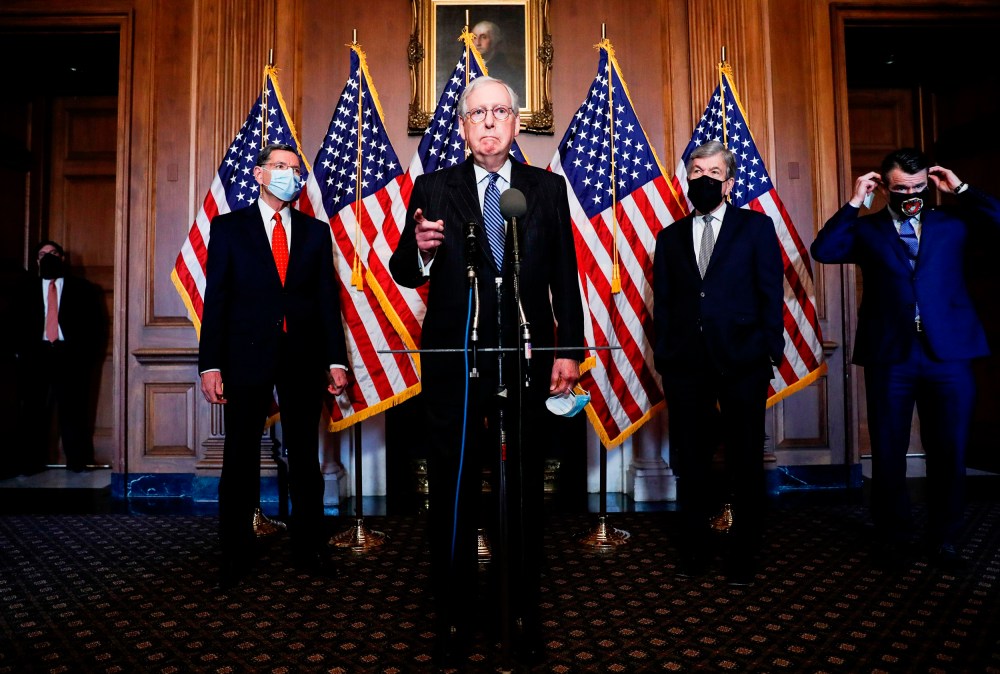The Senate has been stuck in recent weeks. Voters put Democrats in the majority, but Senate Minority Leader Mitch McConnell (R-Ky.) has largely blocked the chamber from functioning, insisting that Democratic leaders meet his demands.
Last night, McConnell backed off.
Senate Minority Leader Mitch McConnell, R-Ky., signaled late Monday night that he was open to a power-sharing agreement with Democrats that did not include a written commitment to keeping the filibuster.
Let’s quickly review how we arrived at this point. As we discussed last week, the Senate needs to approve something called an organizing resolution at the start of the session, which ordinarily is a straightforward agreement among senators about how the chamber will function over the course of the Congress.
In an evenly divided Senate — each party now has a 50-member conference — the resolution is a bit more complicated, but the expectation was that the chamber would function the same way it did 20 years ago, which is the last time there was a 50-50 Senate.
This month, McConnell said the old template was no longer good enough. The top GOP senator refused to endorse a power-sharing agreement — threatening to filibuster the organizing resolution — unless Senate Majority Leader Chuck Schumer (D-N.Y.) agreed in advance that Democrats will not eliminate legislative filibusters over the next two years.
Or put another way, McConnell effectively told Schumer, “If you won’t let me block your agenda with filibusters, I’ll block Democrats from controlling the Senate through a filibuster.”
Schumer and his party, not surprisingly, refused to give up its leverage for the next two years, so McConnell wouldn’t allow the Senate to function normally — a stance that left Republicans in charge of Senate committees, despite the fact that the GOP is now in the minority.
So why did McConnell cave last night? To hear the Kentucky Republican tell it, his blockade is no longer necessary, since Schumer doesn’t have the votes to scrap the legislative filibuster, even if he wants to.
Indeed, this procedural reality came into sharp focus yesterday: Sen. Joe Manchin (D-W.Va.), arguably Congress’ most conservative Democrat, “guaranteed” that he would not vote to change the filibuster rules over the next two years. Around the same time, a spokesperson for Sen. Kyrsten Sinema (D-Ariz.) said the senator is “against eliminating the filibuster, and she is not open to changing her mind about eliminating the filibuster.”
For McConnell, that was enough. “Today two Democratic Senators publicly confirmed they will not vote to end the legislative filibuster,” he said in a written statement issued last night. He added, “With these assurances, I look forward to moving ahead with a power-sharing agreement modeled on that precedent.”
So, now what? There are a few questions to keep in mind:














